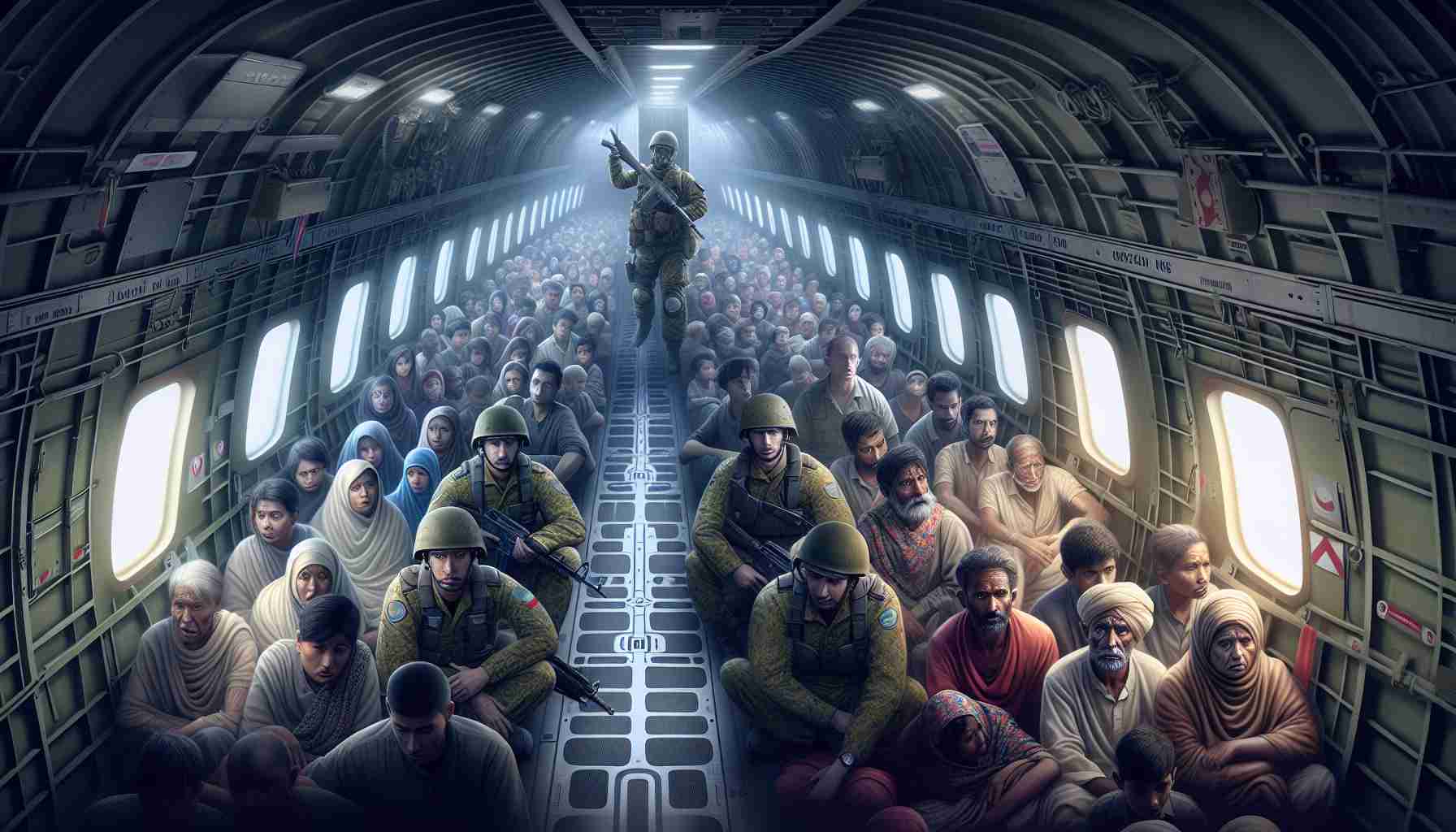- The Indian Overseas Congress (IOC) has condemned the deportation of Indian immigrants being transported on a U.S. military aircraft.
- This treatment of vulnerable individuals has been described as undignified and unacceptable by IOC leaders.
- Concerns were raised about India allowing a U.S. military plane to land when other nations have declined similar requests.
- The IOC is committed to advocating for the dignity and rights of these deported individuals.
- There is a growing concern regarding India’s international reputation and its treatment of its citizens abroad.
- The situation has sparked calls for accountability from both the U.S. and Indian governments.
In a heart-wrenching tale unfolding from Amritsar, the Indian Overseas Congress (IOC) has voiced outrage over the deportation of Indian immigrants back to their homeland. The disturbing account reveals that these individuals were not only shackled but also transported aboard a U.S. military aircraft — a move that has drawn fierce condemnation.
Desperate and vulnerable, these Indians, often victims of dire circumstances, are now being treated like criminals. Rajwinder Singh, a senior leader within the IOC, expressed profound concern, emphasizing that the use of a military aircraft for such deportations was both undignified and unacceptable. During a recent online meeting of IOC members from the U.S. and Europe, the treatment of these individuals was a central focus of ire.
Many attendees raised poignant questions about India’s decision to permit a U.S. military plane to land, especially when other nations, like Colombia, have refused. Residents are left wondering why civilian flights couldn’t suffice, fearing that this choice diminishes India’s standing on the global stage.
The IOC’s commitment to this issue is unwavering. Shudh Singh remarked that the treatment of fellow Indians would become a major point of action. As these conversations intensify, it’s clear that the IOC aims to hold both the U.S. and Indian governments accountable, questioning their roles in a scenario they believe reflects a troubling allegiance and brings shame to the community.
The unfolding drama spotlights a crucial takeaway: human dignity should never be compromised, regardless of the circumstances.
Outrage and Controversy: The Human Cost of Deportation
# Deportation of Indian Immigrants: A Disturbing Situation
The deportation of Indian immigrants returning to India has sparked a wave of outrage from various organizations, particularly the Indian Overseas Congress (IOC). Recent reports highlight that these individuals were not only deported but also shackled and transported on a U.S. military aircraft. This situation has raised significant concerns regarding human rights and dignity during the deportation process.
# New Insights and Facts
1. Treatment of Deportees: The deportation process described has led to severe criticism, as many view the usage of a military aircraft for this purpose as an act that undermines human dignity. Activists argue that such a move sends a message that these individuals are being treated not as citizens but as criminals.
2. Global Comparisons: The contrasting treatment of deportees from Colombia, where the government has refused similar arrangements, highlights an emerging trend in international human rights practices. Other countries are observing this situation closely, which may influence their policies on deportations.
3. Political Ramifications: The IOC’s strong stance against the deportation has ignited political discussions—not only in the Indian diaspora but also in India, where leaders are under increasing pressure to respond to these criticisms. This event could potentially shift the dynamics of Indian-American relations as it raises questions about sovereignty and international cooperation in deportation processes.
Most Important Related Questions
1. What are the implications of using military aircraft for deportations?
The implication of using military aircraft is significant as it raises questions about the treatment of deportees and the message it sends regarding their status. The military connotation may contribute to a perception of inhumanity, leading to potential international scrutiny and condemnation of such practices.
2. How does this situation affect India’s reputation internationally?
India’s willingness to accept such deportations could lead to a diminished reputation regarding human rights. It raises questions about the country’s commitment to treating its citizens with dignity and respect. Nations observably leaning towards humanitarian practices may begin to scrutinize India’s immigration policies more closely.
3. What steps are being taken to address the concerns raised by the IOC and other advocacy groups?
The IOC has pledged to hold both the U.S. and Indian governments accountable for their actions, seeking to initiate dialogue and reform regarding deportation practices. Advocacy groups are also mobilizing to gather support and raise awareness about the treatment of deportees, which could lead to broader reforms in immigration policy.
For more on this topic, you can explore additional news and insights at New York Times.
